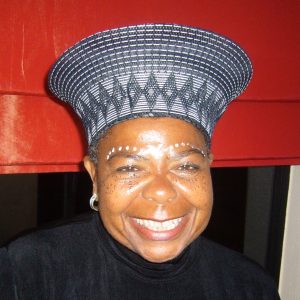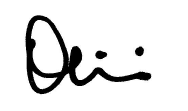I was skeptical of an invented, winter solstice holiday for African Americans back in the 90s when it caught my interest. I found Maulana Karenga’s book describing the holiday he created, Kwanzaa: A Celebration of Family, Community and Culture. It was an ah-ha that Maulana Karenga was Ron Karenga, the much-maligned Black Power activist I knew of, but not much about. Still leery of its origin, he was on to something I could relate to, never-the-less.
Kwanzaa is not a religious holiday, nor is it meant to replace any. Instead, it is a pan-African celebration of human values, most of which are spiritual. Dr. Karenga’s intent was to celebrate “what it means to be African and human”. But originally, aren’t we all that?
Kwanzaa begins on December 26th and culminates on January 1st – seven days to reflect upon 7 principles: umoja (unity), kujichagulia (self-determination), ujima (collective work and responsibility), ujamaa (cooperative economics), nia (purpose), kuumba (creativity) and imani (faith). Kwanzaa names them the Nguzo Saba (Seven Principles). The descriptions on the Kwanzaa conceptual framework come from Dr. Karenga’s Official Kwanzaa Website.
Here is what the principles have come to mean to me and how I reflect on them each day of Kwanzaa.
Unity (December 26)
While Kwanzaa has 4 levels of unity, I add a 5th. From family to intergenerational to community to pan-African, as human beings, we must embrace a planetary Umoja. We are one and what we do to each other and the planet, we do to ourselves and this home we share.
Self-Determination (December 27)
Kujichagulia asserts that we African people define, defend, and develop ourselves instead of allowing or encouraging others to do so. So should every individual, group, race, or whatever “tribe” on this planet. Cultures are appropriated, history censured and rewritten, fed back to us all with a dominant-culture spin. Our lived experience defines who we are.
Collective Work and Responsibility (December 28)
It follows from the principle of Oneness that what I do to benefit others is at the same time a benefit to me. Ujima is a commitment to active and informed collaboration on matters of common interest; to making our brother’s and sister’s problems our problems and solving them together. This is work for the common good. Hard to do without conversation, cooperation, empathy, and compassion.
Cooperative Economics (December 29)
Ujamaa demands shared work, wealth, and good in the world. In African communities, this is building and maintaining our own businesses and profiting from them together. In general, this is a commitment to the practice of shared social wealth and the work necessary to achieve it. Attempts to build and maintain Black cooperative economies here it he US ended in massacres and destruction. To me, this is the most difficult principle to embrace because of the reality of systemic barriers to work and wealth for people of color in this country. What we CAN do is unify in support of each other, Black and brown people collaborating on interests in common. Solidarity!
Purpose (December 30)
Nia in the Kwanzaa context appears to focus on the purpose of Kwanzaa rather than personal or community purpose. For me, the purpose reflection is why am I here and what is mine to do. The purpose of Kwanzaa is to restore African people, communities, culture, and history to their traditional greatness. Existentially, that greatness, any greatness, is found within and cannot be taken away.
Creativity (December 31)
Kuumba means to do as much as we can, in the way we can, to leave our community more beautiful and beneficial than we inherited it. In agreement with Dr. Karenga’s assertion that Creativity (Kuumba) must follow Purpose (Nia), this reflection expands upon what is mine to do. I have a personal and spiritual belief that we are all individualized expressions of the One Life here now to share our unique gifts in service to others. Be and do me
Faith (January 1)
The Imani of Kwanzaa is to believe with all our heart in our people, our parents, our teachers, our leaders, and the righteousness and victory of our struggle. My understanding of faith is anchored by the spiritual “assurance of things hoped for, the conviction of things not seen.”
In the context of African spirituality, Imani begins with a belief in the Creator and its positiveness, leading to a belief in the essential goodness and possibility of the human personality. Faith is why I’m an eternal optimist. We can change. But optimism is not a personality. It takes practice.
Twenty years ago, on a stormy December night in Tomales Bay, I mentioned Kwanzaa in a conversation with author and consultant, Peter Block. He was one of the thought leaders at a weekend transformational leadership conference that went way off the agenda when we lost power. I was moved by his curiosity and how deeply he listened to my answers to his questions. From that experience, I made it my personal Kwanzaa practice to raise awareness of anyone interested in knowing more about it. Kwanzaa can be a solstice celebration for ALL – an end-of-year reflection on how we can become a world that works for everyone and everything.
With much love and deep gratitude…




kujichagulia ( self determination) is my take home today!
How I wish we knew the greatness within us, as Africans and people of African Descent.
Yes, it must be our own stories and interpretation of our experiences that define who we really are.
Thanks O. May you have a blessed week and a very blessed New Year. I treasure you ❤️
Thank you, my friend! I am, indeed, having a good week. I’m knowing the same for you! And may 2023 bring good things.